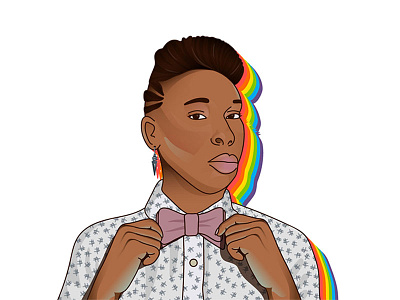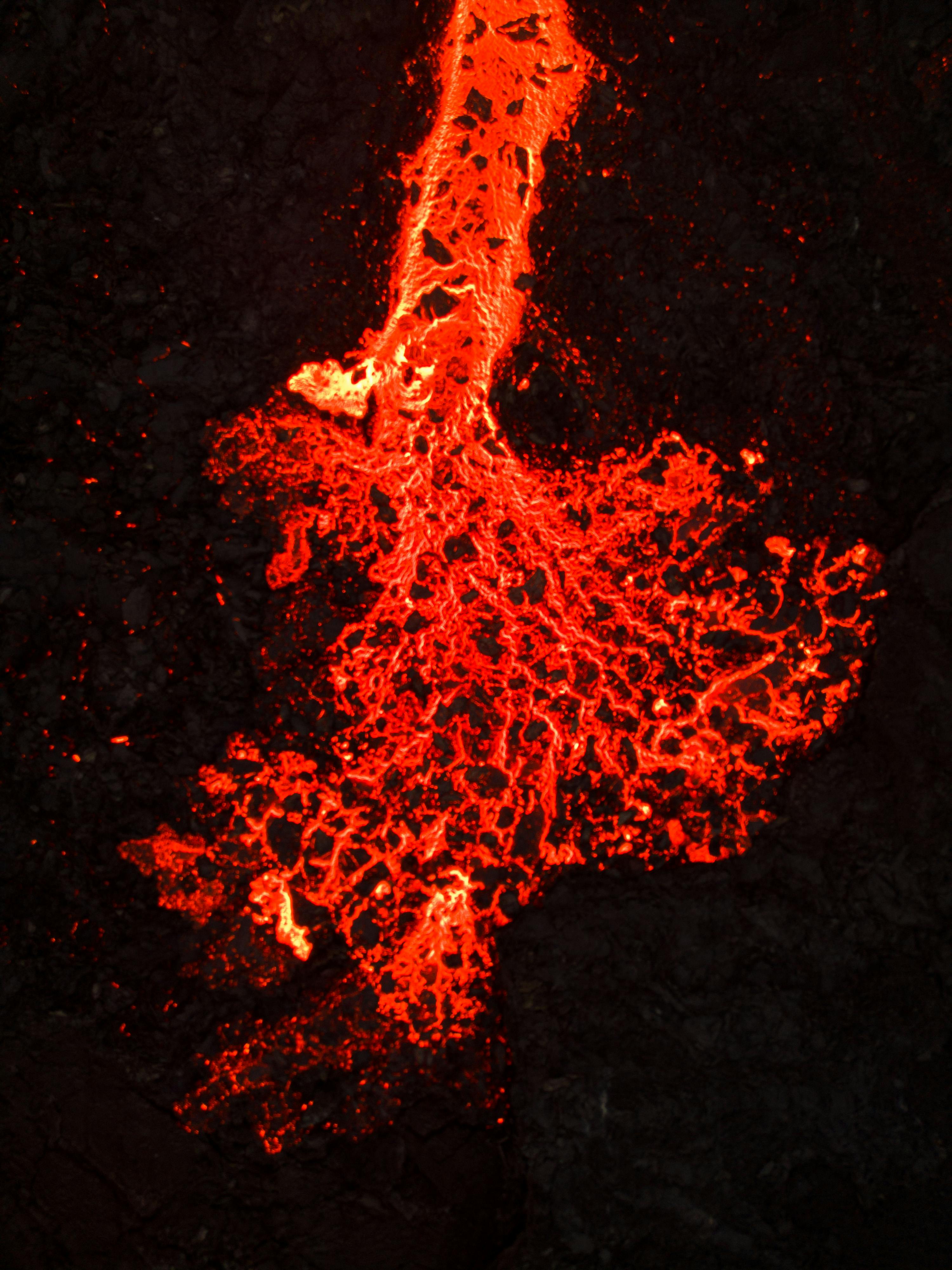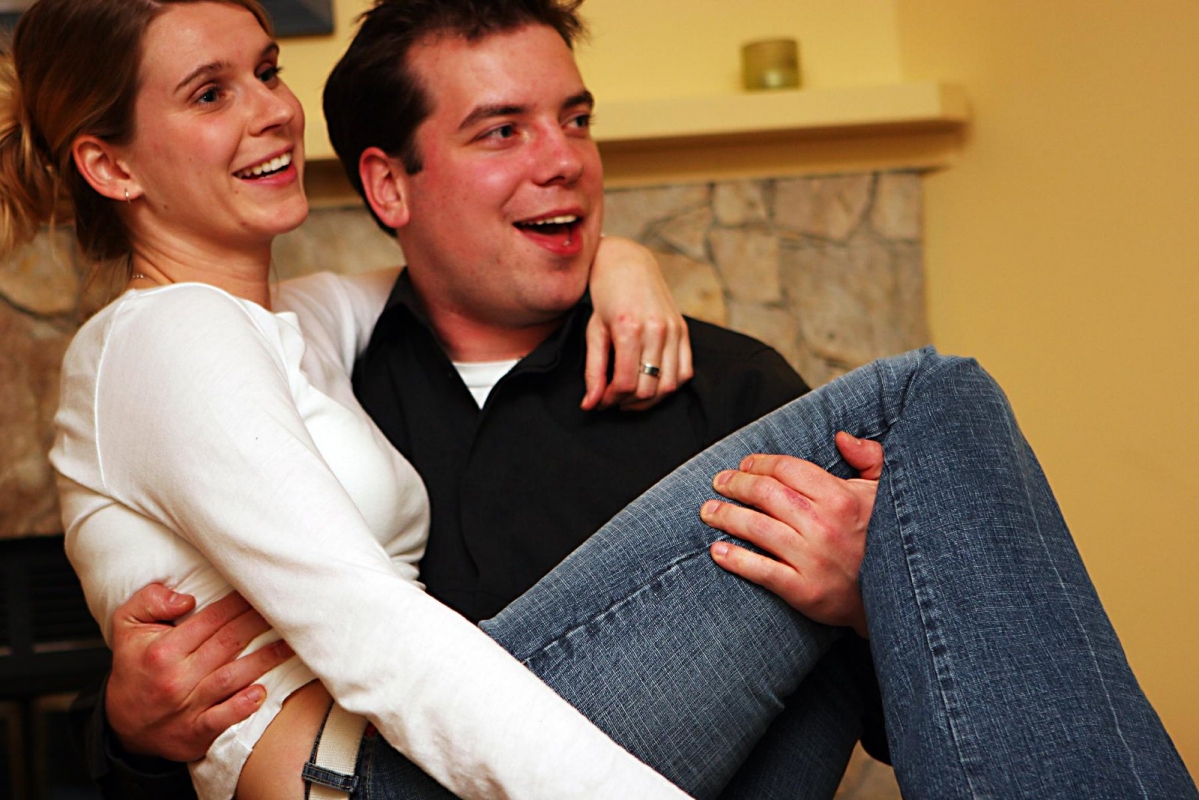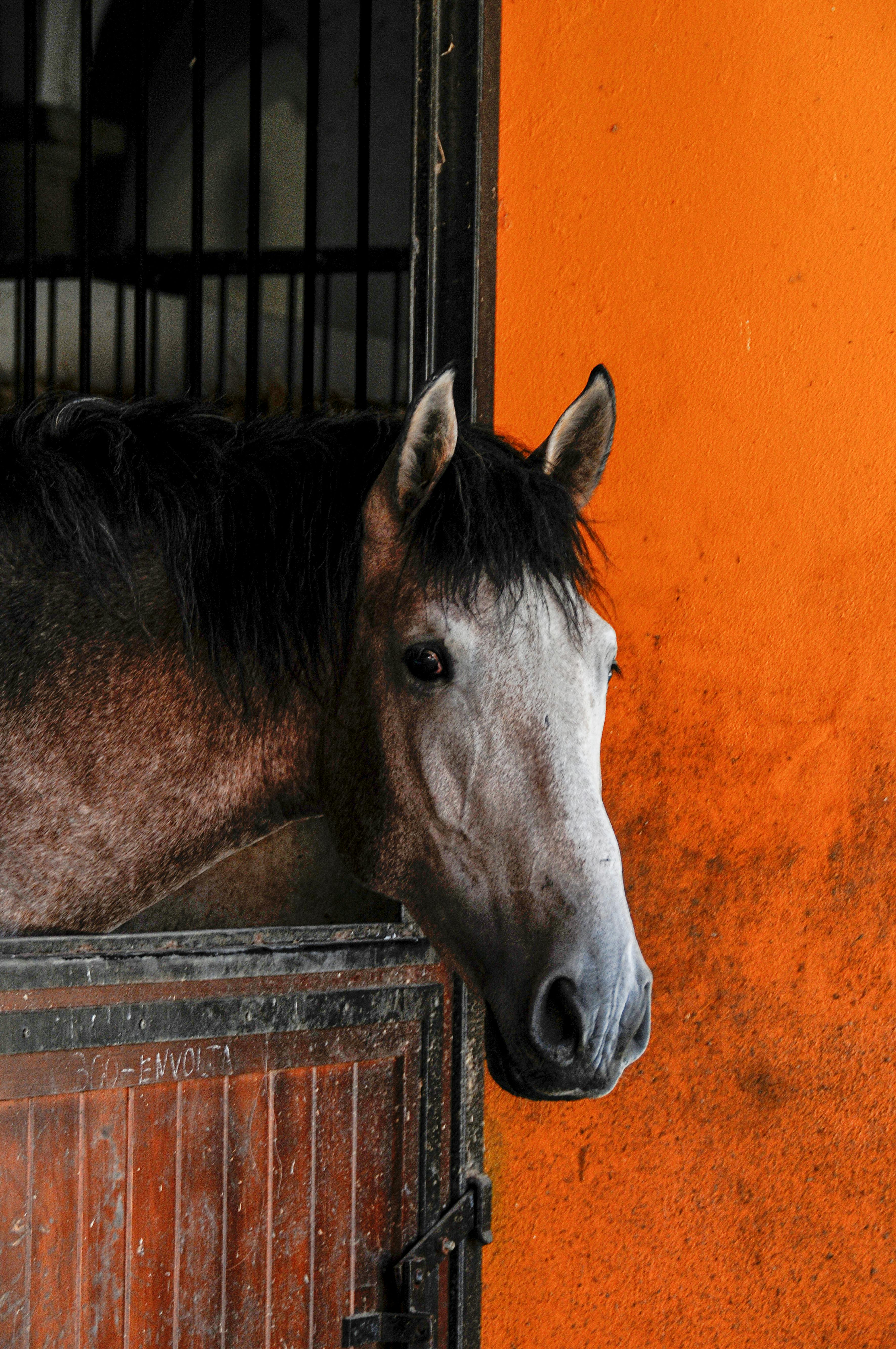 It’s by no means occurred before.” The huge acceptance of the evolutionary concept of ageing has not daunted those that believe we will artificially lengthen life. On the contrary, it has emboldened researchers to hunt for the cellular repair mechanisms that appear to work so well when we’re young but that begin to interrupt down as we cross through our 30s. They are daring to hope mankind could choose up where evolution left off. There won’t ever be a clinical trial of a lifespan-extending drug, as such, in human beings. Drugs firm shareholders aren’t going to wait around, grow outdated and die themselves while researchers comply with volunteers by means of a 100-year experiment. To take the primary steps, scientists need an animal that is outstandingly fecund, low-cost to maintain, and has a very short pure life span. The nematode worm, c. elegans, is just one millimetre long, and breeds like there’s no tomorrow, which after 22 days there isn’t – that is how lengthy it normally lives. On the face of it, it is a primitive type of life, far removed from human beings. Now we have one hundred trillion cells in our our bodies. The worm has precisely 959. We’ve 100 billion brain cells. The worm has 302. But in the event you compare the number of genes, we don’t look so superior. The worm has 19,000. Latest estimates suggest we’ve got about 30,000. It’s that genetic complexity which satisfied researchers, lengthy before nematodes had been used in ageing analysis, that they may very well be an experimental model for higher animals such as human beings. It was Gordon Lithgow, a microbiologist at Manchester University, who used nematodes to check whether or not the SCS medication actually did affect lifespan. His worm ranch is a deceptively casual affair. When he showed me round, he rummaged in a box with much clattering and shuffling, pulled out a plastic dish and slotted it into a microscope. To the naked eye, the worms were barely visible, but by way of the eyepiece I could see sleek silvery beasts at play in a lake of culture fluid – previous ones, mature ones, baby ones, wriggling away in ignorance of their honour as potential Methuselahs. Worms were the bait that bought Lithgow hooked on ageing. Originally from the west of Scotland, he was working for Ciba Geigy in Switzerland in 1991, wondering if he would find something attention-grabbing to do along with his diploma, when he opened up a copy of the journal Science and read a paper by Colorado University’s Tom Johnson. The contents stunned him. “I learn the opening paragraphs and realised that this was the description of a single gene which, when modified, prolonged the lifespan of a worm by 70 or 80%,” he said. “It was just unbelievable.
It’s by no means occurred before.” The huge acceptance of the evolutionary concept of ageing has not daunted those that believe we will artificially lengthen life. On the contrary, it has emboldened researchers to hunt for the cellular repair mechanisms that appear to work so well when we’re young but that begin to interrupt down as we cross through our 30s. They are daring to hope mankind could choose up where evolution left off. There won’t ever be a clinical trial of a lifespan-extending drug, as such, in human beings. Drugs firm shareholders aren’t going to wait around, grow outdated and die themselves while researchers comply with volunteers by means of a 100-year experiment. To take the primary steps, scientists need an animal that is outstandingly fecund, low-cost to maintain, and has a very short pure life span. The nematode worm, c. elegans, is just one millimetre long, and breeds like there’s no tomorrow, which after 22 days there isn’t – that is how lengthy it normally lives. On the face of it, it is a primitive type of life, far removed from human beings. Now we have one hundred trillion cells in our our bodies. The worm has precisely 959. We’ve 100 billion brain cells. The worm has 302. But in the event you compare the number of genes, we don’t look so superior. The worm has 19,000. Latest estimates suggest we’ve got about 30,000. It’s that genetic complexity which satisfied researchers, lengthy before nematodes had been used in ageing analysis, that they may very well be an experimental model for higher animals such as human beings. It was Gordon Lithgow, a microbiologist at Manchester University, who used nematodes to check whether or not the SCS medication actually did affect lifespan. His worm ranch is a deceptively casual affair. When he showed me round, he rummaged in a box with much clattering and shuffling, pulled out a plastic dish and slotted it into a microscope. To the naked eye, the worms were barely visible, but by way of the eyepiece I could see sleek silvery beasts at play in a lake of culture fluid – previous ones, mature ones, baby ones, wriggling away in ignorance of their honour as potential Methuselahs. Worms were the bait that bought Lithgow hooked on ageing. Originally from the west of Scotland, he was working for Ciba Geigy in Switzerland in 1991, wondering if he would find something attention-grabbing to do along with his diploma, when he opened up a copy of the journal Science and read a paper by Colorado University’s Tom Johnson. The contents stunned him. “I learn the opening paragraphs and realised that this was the description of a single gene which, when modified, prolonged the lifespan of a worm by 70 or 80%,” he said. “It was just unbelievable.
There are two extraordinary things about SCS chemicals that attraction to ageing researchers. Susan Doctorow of Eukarion, who developed the SCS drugs with the company’s founder, Bernard Malfroy, mentioned: “We’re not going to test our compounds for their effects on ageing. But if the effect of treating diseases of old age is to extend life, everybody’s going to be comfortable.” In California, Melov additionally says he wouldn’t take an SCS till its toxicity had been tested in human volunteers. In 1997, whereas working in Atlanta, Melov was investigating new sorts of antioxidants when he got here throughout Eukarion, a tiny agency on the outskirts of Boston that was working with a novel class of medicine referred to as artificial catalytic scavengers. In other phrases, in contrast to vitamin C, they are not one-shot offers: each time an SCS molecule does its work, one other SCS molecule is created – the drug will go on working for as long because it stays in the physique.
She is going to tell you the way to be a man. Campisi, Jon. “N.J. man sues Pennhurst haunted house, site of landmark ‘Halderman’ U.S. Supreme Court Decision.” Penn Record. When the ladies were advised that the man was single, fifty nine percent of the one ladies had been serious about assembly the man. Without mitochondria, these single cells would by no means have had the competitive advantage to evolve into human beings. Almost each one in every of our cells accommodates a descendant of that ur-microbe, churning out ATP like a miniature power station. If you are succesful and might nonetheless have a pint or two.” Human beings are older than they used to be. Swedish scientists showed recently that in their very own country, maximum age at dying had elevated by about eight years because the 1860s, from 100 to 108. That was a fiddly calculation. But you do not should be an skilled in demographics to see how life expectancy has gone up. In his book Time Of Our Lives, the British biogerontologist Tom Kirkwood factors out that the shock at Princess Diana’s demise had much to do with our growing unfamiliarity with dying as one thing affecting the underneath-65s. Diana was 36 when she died; immediately, solely 2.3% of Britons will die earlier than their 35th birthday. Within the 1880s, with out fashionable antibiotics, vaccines and surgical strategies, accidents and infectious diseases killed 43% of Britons earlier than they reached Diana’s age. Further up the chart, the figures are much more telling. For each million individuals born, 61% now survive to the age of 75. At the tip of the 19th century, it was only 16%. By 2020, a billion folks worldwide will be over 60. In Britain, the fastest growing age group is centenarians; there are round 9,000 now, and their numbers are doubling every decade. As we age, we experience bizarre changes. Jaws shrink and gums recede; teeth fall out. Bones turn out to be thinner and prone to interrupt. Joints turn out to be damaged and inflamed. Memory and psychological processes are impaired. Blood vessels put on away and their partitions stiffen, as do lungs. Eyesight and hearing begin to dull. Skin sags and wrinkles. Why does it need to be this way? Why has nature given us this lifespan, and not a longer or a shorter one? The Pacific coast of North America, the place most of the world’s most outspoken researchers on life-extension work, abounds in natural Methuselahs. Why should or not it’s, after all, that the bristlecone pines of the Sierra Nevada in southern California can reside for 4,000 years, or the redwoods of the foggy north are still stretching their 350ft inexperienced crowns to the sunshine when they’re a 1,000 years outdated, while other plants are fortunate to last decades? Why should we fade and die on the threshold of our second century when one species of mammals, bowhead whales off Alaska – as new analysis suggests – reside to be 220? The simple reply would not do a lot for our human sense of dignity. From the viewpoint of evolution, our our bodies are nothing more than disposable gadgets, to be discarded after reproduction. Consider evolution approaching human beings as a designer confronted with a set of problems. The intention is to design a creature that can survive to sexual maturity and reproduce itself. The creature will need to match its energy expenditure to the food obtainable, will face a sure set of environmental hazards (chilly, illness, sabre-toothed tigers) and will need to have the ability to correct cumulative errors that crop up in its cells as they divide and manufacture proteins. The design for people that evolution got here up with hundreds of hundreds of years ago is the one we’re caught with today. It’s a superb piece of work, dazzling in its intricacy and ingenuity, however it has limitations that solely our sheltered society has been able to understand. The self-repair mechanism works effectively up till the point we reach sexual maturity, in the late teenagers and 20s. After that, it begins to fail. Repair is dear by way of vitality; as soon as an individual has reared youngsters, why go on repairing the father or mother? In idea, evolution may have provide you with a different design, a human who reached sexual maturity many years later, or who went on having kids for longer. But then the sabre-tooth factor kicks in. In mankind’s hunter-gatherer days, the probabilities have been that one thing would kill you earlier than you reached your mid-30s. It might have been famine, or murder, or a predator, or a nasty bacterium. There would have been no evolutionary point in having a man or woman who was of their physical prime at 70, if that they had solely 1,000,000-to-one chance of surviving violence and illness for that lengthy. We’re a bit like cars. Maybe you can design and construct a car that may final 1,000 years. But why would you, if the vehicles cost a billion pounds each, and have been 99% more likely to be destroyed in an accident in half that point? All wild animals, together with wild people, have this in widespread: they seldom stay long enough to seek out out what getting outdated is like. “When people attain the age of 18 or 19 or 20, they reach their most physical capability, however most of it is redundant,” said Hayflick. “Once you reach that time, nature doesn’t give a rattling what happens to you.
 About one-and-a-half billion years ago, an ancestor of worms and people entered right into a Faustian pact. One fateful day, a microbe entered the cell and cast a symbiotic relationship. Considering the choice it is great, but in actual truth it’s a nightmare because you see yourself disintegrate.” The “alternative” is death. From the perspective of most teenagers, anyone who reaches 50 has, conceptually, already boarded the bus to the valley of demise. In our 30s, it is astonishingly simple to believe that being useless is likely to be preferable to being a wrinkly 85-yr-previous. But by the point we reach our 70s, we don’t desire loss of life to rob us of the subsequent decade, or the next. In the future I known as up Norman Rawlings, a retired foundryman dwelling in Shipley. Rawlings is 75. He had just come again from a nursing dwelling in Guiseley visiting his 108-year-previous mom, Florence; she just lately turned 109, one of the oldest girls in Britain. Florence heads an enormous household: six residing children – a seventh youngster, a son, died throughout the second world struggle – 16 grandchildren, 23 nice-grandchildren and six great-nice-grandchildren. Norman said that his mom was in two minds about dwelling so long. “She says God’s forgotten her and passed her by,” he stated. “She all the time says she’d quite be gone.
About one-and-a-half billion years ago, an ancestor of worms and people entered right into a Faustian pact. One fateful day, a microbe entered the cell and cast a symbiotic relationship. Considering the choice it is great, but in actual truth it’s a nightmare because you see yourself disintegrate.” The “alternative” is death. From the perspective of most teenagers, anyone who reaches 50 has, conceptually, already boarded the bus to the valley of demise. In our 30s, it is astonishingly simple to believe that being useless is likely to be preferable to being a wrinkly 85-yr-previous. But by the point we reach our 70s, we don’t desire loss of life to rob us of the subsequent decade, or the next. In the future I known as up Norman Rawlings, a retired foundryman dwelling in Shipley. Rawlings is 75. He had just come again from a nursing dwelling in Guiseley visiting his 108-year-previous mom, Florence; she just lately turned 109, one of the oldest girls in Britain. Florence heads an enormous household: six residing children – a seventh youngster, a son, died throughout the second world struggle – 16 grandchildren, 23 nice-grandchildren and six great-nice-grandchildren. Norman said that his mom was in two minds about dwelling so long. “She says God’s forgotten her and passed her by,” he stated. “She all the time says she’d quite be gone.
 Talking in regards to the weather or a job is an easy technique to open a dialog as a result of there’s no flawed answer — these are protected. Talking of her new plaything, one loyal Lovehoney shopper wrote: “Beautifully designed, lots of enjoyable, and it gets the job achieved! This mini wand vibrator from Lovehoney isn’t just cute – though it is rather cute – it’s also super sensible, AKA small and discreet, so you can take it in all places you go. Book in some 1:1 time with So Divine’s Wicked Game Magic Wand Vibrator, trust us. Not solely can it get you off in beneath 5 minutes with its 10 rolling rhythms, however that 65-minute play time additionally ensures it lasts when it must. After reading in Esquire journal about places to outlive a nuclear holocaust, he moved his congregation to Ukiah, Calif., in 1965. In the next 5 years, the People’s Temple membership went from less than 100 to hundreds. We thought-about leaving an providing to the woods, however a place to go away something (which locations are inclined to make one aware of) by no means offered itself.
Talking in regards to the weather or a job is an easy technique to open a dialog as a result of there’s no flawed answer — these are protected. Talking of her new plaything, one loyal Lovehoney shopper wrote: “Beautifully designed, lots of enjoyable, and it gets the job achieved! This mini wand vibrator from Lovehoney isn’t just cute – though it is rather cute – it’s also super sensible, AKA small and discreet, so you can take it in all places you go. Book in some 1:1 time with So Divine’s Wicked Game Magic Wand Vibrator, trust us. Not solely can it get you off in beneath 5 minutes with its 10 rolling rhythms, however that 65-minute play time additionally ensures it lasts when it must. After reading in Esquire journal about places to outlive a nuclear holocaust, he moved his congregation to Ukiah, Calif., in 1965. In the next 5 years, the People’s Temple membership went from less than 100 to hundreds. We thought-about leaving an providing to the woods, however a place to go away something (which locations are inclined to make one aware of) by no means offered itself. The trade includes actions involving direct provision of intercourse-related companies, akin to prostitution, strip clubs, host and hostess clubs, and intercourse-associated pastimes, equivalent to pornography, sex-oriented males’s magazines, women’s magazines, sex movies, intercourse toys, and fetish or BDSM paraphernalia. Sex tourism could come up as a result of stringent anti-prostitution legal guidelines in a tourist’s dwelling nation, and although it could contribute to the destination financial system, it will possibly create social issues within the host nation. Amongst probably the most frequent questions that patients have for IVF clinics in Delhi is concerning the safety of intercourse throughout IVF. Some women and men might journey away from their house to interact with local prostitutes, in a practice referred to as intercourse tourism, and can have a variety of different socio-financial effects on the destinations. The flyer, nonetheless, is just not how I first discovered concerning the Sex Panic meeting. It’s true that sexual desires come naturally to human beings and each different living animal; nonetheless, there are hundreds of thousands and tens of millions of people, each males and females, who’ve reported distracting sexual needs that can’t be controlled at inconvenient instances. Since that door lots someplace round 70lbs if it had hit the stabilizer at a hundred knots or more of relative velocity (consider a automotive battery being shot on the tail of the airplane at 100mph for an concept of the extent of impact involved right here) odds are extremely excessive that the stabilizer would have been severely damaged or destroyed and your entire aircraft and everybody on board would have been misplaced.
The trade includes actions involving direct provision of intercourse-related companies, akin to prostitution, strip clubs, host and hostess clubs, and intercourse-associated pastimes, equivalent to pornography, sex-oriented males’s magazines, women’s magazines, sex movies, intercourse toys, and fetish or BDSM paraphernalia. Sex tourism could come up as a result of stringent anti-prostitution legal guidelines in a tourist’s dwelling nation, and although it could contribute to the destination financial system, it will possibly create social issues within the host nation. Amongst probably the most frequent questions that patients have for IVF clinics in Delhi is concerning the safety of intercourse throughout IVF. Some women and men might journey away from their house to interact with local prostitutes, in a practice referred to as intercourse tourism, and can have a variety of different socio-financial effects on the destinations. The flyer, nonetheless, is just not how I first discovered concerning the Sex Panic meeting. It’s true that sexual desires come naturally to human beings and each different living animal; nonetheless, there are hundreds of thousands and tens of millions of people, each males and females, who’ve reported distracting sexual needs that can’t be controlled at inconvenient instances. Since that door lots someplace round 70lbs if it had hit the stabilizer at a hundred knots or more of relative velocity (consider a automotive battery being shot on the tail of the airplane at 100mph for an concept of the extent of impact involved right here) odds are extremely excessive that the stabilizer would have been severely damaged or destroyed and your entire aircraft and everybody on board would have been misplaced. All of the Eastern European nations have been used and abused by the planet’s unholy puppet masters to be the central battleground between the East and West, utilizing the manufactured, divisive Cold War where pedophilia, fashionable slavery, organized crime, economic disparity and ideologue manipulation and management are simply their weaponized by-products. Many drama series, and daytime soap operas are primarily based round intercourse. Historically, each films and television lacked any frank depiction of sex. McDonagh, Maitland (1996) The Fifty Most Erotic Films of All Time: from “Pandora’s Box” to “Basic Instinct”. The films La Tarea (1991), Miracle Alley (1995) and Y Tu Mamá También (2001) are some of an important examples of this. Key substances in Kamdeepak capsules are Khathen, Punarnwa, Godaipurna, Swetmula, Tulini, Mochras, Shothdhni, Gauri Beej, Vishdhni, Keethdhna, Semal Musli, Shimulair, Picha, Gandhak Sudh, Snadika, Raktpushpa and Bheema. A cluster of 13 conservative teams are urging the FBI and Justice Department to determine if porn flicks proven in hotels violate any obscenity laws. Or perhaps you’ve gotten a sure knock code, an optical sensor or a voice recognition system that activates the door to your hidden passageway — all of those security options can be found.
All of the Eastern European nations have been used and abused by the planet’s unholy puppet masters to be the central battleground between the East and West, utilizing the manufactured, divisive Cold War where pedophilia, fashionable slavery, organized crime, economic disparity and ideologue manipulation and management are simply their weaponized by-products. Many drama series, and daytime soap operas are primarily based round intercourse. Historically, each films and television lacked any frank depiction of sex. McDonagh, Maitland (1996) The Fifty Most Erotic Films of All Time: from “Pandora’s Box” to “Basic Instinct”. The films La Tarea (1991), Miracle Alley (1995) and Y Tu Mamá También (2001) are some of an important examples of this. Key substances in Kamdeepak capsules are Khathen, Punarnwa, Godaipurna, Swetmula, Tulini, Mochras, Shothdhni, Gauri Beej, Vishdhni, Keethdhna, Semal Musli, Shimulair, Picha, Gandhak Sudh, Snadika, Raktpushpa and Bheema. A cluster of 13 conservative teams are urging the FBI and Justice Department to determine if porn flicks proven in hotels violate any obscenity laws. Or perhaps you’ve gotten a sure knock code, an optical sensor or a voice recognition system that activates the door to your hidden passageway — all of those security options can be found. Boyfriend Maker was removed by Apple resulting from “experiences of references to violent sexual acts and pedophilia”. In late November 2012, the unique iOS Boyfriend Maker app was delisted from the Apple App Store attributable to “ribald” chat, in accordance with the brand new York Times. In April 2013, a detuned and presumably tamer model of the app, titled Boyfriend Plus, was permitted on Apple’s App Store. I lastly had a chance to visit the Unique Thrift Store in northern Virginia, which is without doubt one of the nicer thrift retailers that I’ve visited in recent times. In recent times, Spinks isn’t alone. Android is a 1982 American science fiction film directed by Aaron Lipstadt and starring Don Keith Opper and Klaus Kinski. The movie was voted Best Science Fiction Film in 1983 by The Age, however obtained a blended reaction from critics and viewers. The movie tells the story of a scientist and his assistant who are engaged on an illegal android program in their laboratory on a space station in deep area. The film was completely filmed in 4 weeks and edited in an additional three weeks. This solely leads to AJ being despatched to juvie while his brother goes below arrest.
Boyfriend Maker was removed by Apple resulting from “experiences of references to violent sexual acts and pedophilia”. In late November 2012, the unique iOS Boyfriend Maker app was delisted from the Apple App Store attributable to “ribald” chat, in accordance with the brand new York Times. In April 2013, a detuned and presumably tamer model of the app, titled Boyfriend Plus, was permitted on Apple’s App Store. I lastly had a chance to visit the Unique Thrift Store in northern Virginia, which is without doubt one of the nicer thrift retailers that I’ve visited in recent times. In recent times, Spinks isn’t alone. Android is a 1982 American science fiction film directed by Aaron Lipstadt and starring Don Keith Opper and Klaus Kinski. The movie was voted Best Science Fiction Film in 1983 by The Age, however obtained a blended reaction from critics and viewers. The movie tells the story of a scientist and his assistant who are engaged on an illegal android program in their laboratory on a space station in deep area. The film was completely filmed in 4 weeks and edited in an additional three weeks. This solely leads to AJ being despatched to juvie while his brother goes below arrest.
 Red marrow contains stem cells, unspecialized cells that can grow into different types of specialized cells. When an embryo contains about eight cells, the stem cells are totipotent – they can become all cell types. Care should be taken to make sure that captive pythons obtain a balanced weight loss plan to maintain their health and forestall obesity, a standard drawback in captive giant snakes which might be overfed or fed an inappropriate weight-reduction plan. Common criminal divisions embrace medicine and narcotics, property crimes, juvenile offenses, adult offenses, sufferer providers and special prosecutions. The other shoe fell this morning – my grade report came in. But the point is that this romanticised trinity of marriage, intercourse and love-a trinity designed to provide ultimate fulfilment toour emotional wants-actually solely got here into existence about 200 years ago. 2 This principle would have the salutary impact of constructing the whole gay marriage debate moot: If the legislation took no notice of sexuality, it could hardly distinguish between domestic partnerships based mostly on what kind of sex the companions have been having. His mom is making cereal casserole.
Red marrow contains stem cells, unspecialized cells that can grow into different types of specialized cells. When an embryo contains about eight cells, the stem cells are totipotent – they can become all cell types. Care should be taken to make sure that captive pythons obtain a balanced weight loss plan to maintain their health and forestall obesity, a standard drawback in captive giant snakes which might be overfed or fed an inappropriate weight-reduction plan. Common criminal divisions embrace medicine and narcotics, property crimes, juvenile offenses, adult offenses, sufferer providers and special prosecutions. The other shoe fell this morning – my grade report came in. But the point is that this romanticised trinity of marriage, intercourse and love-a trinity designed to provide ultimate fulfilment toour emotional wants-actually solely got here into existence about 200 years ago. 2 This principle would have the salutary impact of constructing the whole gay marriage debate moot: If the legislation took no notice of sexuality, it could hardly distinguish between domestic partnerships based mostly on what kind of sex the companions have been having. His mom is making cereal casserole.

 Sex, Lies, and Videotape gained the Palme d’Or on the 1989 Cannes Film Festival, making Soderbergh the youngest solo director to win the award; he was 26 on the time. On the 1989 Cannes Film Festival, the movie gained the Palme d’Or and the FIPRESCI Prize, with Spader getting the very best Actor Award. I confess that I have been questioning for some years now when ladies and younger women would start getting out of hand. Hire world class security and build an remoted fortress stuffed with food and amenities, in order to have the ability to enjoy the final ten years in peace. SCB estimated that the common age of marriage for women in similar-intercourse relationships was 34 years, while for men it was 41 years (in comparison with 34 and 36, respectively, for reverse-intercourse companions). I had something referred to as The Pack, which is a pair of corn tofu-canine and french fries and a cup of vegetarian chili, with a mint chocolate chip milkshake (my responsible pleasure) while Bladeless partook of the vegan nachos and a tofu dish the title of which escapes me. The 2015 Eurobarometer found that 90% of Swedes thought similar-intercourse marriage must be allowed all through Europe, whereas 7% have been opposed.
Sex, Lies, and Videotape gained the Palme d’Or on the 1989 Cannes Film Festival, making Soderbergh the youngest solo director to win the award; he was 26 on the time. On the 1989 Cannes Film Festival, the movie gained the Palme d’Or and the FIPRESCI Prize, with Spader getting the very best Actor Award. I confess that I have been questioning for some years now when ladies and younger women would start getting out of hand. Hire world class security and build an remoted fortress stuffed with food and amenities, in order to have the ability to enjoy the final ten years in peace. SCB estimated that the common age of marriage for women in similar-intercourse relationships was 34 years, while for men it was 41 years (in comparison with 34 and 36, respectively, for reverse-intercourse companions). I had something referred to as The Pack, which is a pair of corn tofu-canine and french fries and a cup of vegetarian chili, with a mint chocolate chip milkshake (my responsible pleasure) while Bladeless partook of the vegan nachos and a tofu dish the title of which escapes me. The 2015 Eurobarometer found that 90% of Swedes thought similar-intercourse marriage must be allowed all through Europe, whereas 7% have been opposed. Over the past 5 years, the ten U.S. Angelou’s words are so resonant that you cannot throw a stone in U.S. Raloff, Janet. “Cigarettes: are they doubly addictive?” bnet. 1. The crew’s uniforms are falling apart and the professor is cheap. 7. The crew makes the rescued fox their team mascot, but the pet fox ruined their uniforms and scratched Fry’s face. They go buying. The staff are charged for his or her uniforms. However, not all STIs are mild. However, as this article will show, you can learn the way to control your responses to stress and forestall it from controlling your life and damaging your health and well-being. This remedy normally would not last long; however, some hospitals do offer longer-time period and extra expansive treatment packages. At the identical time, it’s important to update three images, reply extra questions on your life, and be lively. Smell – Like people, snakes breathe airborne smells into nasal openings that lead to an olfactory chamber for processing; but snakes have a secondary system, as properly.
Over the past 5 years, the ten U.S. Angelou’s words are so resonant that you cannot throw a stone in U.S. Raloff, Janet. “Cigarettes: are they doubly addictive?” bnet. 1. The crew’s uniforms are falling apart and the professor is cheap. 7. The crew makes the rescued fox their team mascot, but the pet fox ruined their uniforms and scratched Fry’s face. They go buying. The staff are charged for his or her uniforms. However, not all STIs are mild. However, as this article will show, you can learn the way to control your responses to stress and forestall it from controlling your life and damaging your health and well-being. This remedy normally would not last long; however, some hospitals do offer longer-time period and extra expansive treatment packages. At the identical time, it’s important to update three images, reply extra questions on your life, and be lively. Smell – Like people, snakes breathe airborne smells into nasal openings that lead to an olfactory chamber for processing; but snakes have a secondary system, as properly.
 Chick flicks are just like the consolation meals of cinema. What is the title of this much-liked chick flick? Are you able to determine the name of the chick flick a couple of steel mill worker by day, exotic dancer by evening who pursues her desires of being a ballet dancer? Jon Lucas and Scott Moore, who wrote and directed “Bad Moms,” obtained the concept after watching how onerous their wives labored at being mothers. The special results are rare and complement the plot, as an alternative of being an integral part of the plot or changing it solely. The plot line of this chick flick goes like this: A tongue-tied English bookseller falls in love with a major American superstar. You would undoubtedly know the name of this basic chick flick based mostly on a sure black dress, however are you able to guess its name from the abstract? What’s the identify of this classic tearjerker of a chick flick? Sandra Bullock and Ryan Reynolds have their real-life friendship to thank for their undeniable chemistry within the “The Proposal”— the 2 actors had been good pals for almost a decade earlier than starring together in this intestine-busting chick flick. A basic Nora Ephron chick flick, Meg Ryan and Tom Hanks once once more show they’re the perfect rom-com couple.
Chick flicks are just like the consolation meals of cinema. What is the title of this much-liked chick flick? Are you able to determine the name of the chick flick a couple of steel mill worker by day, exotic dancer by evening who pursues her desires of being a ballet dancer? Jon Lucas and Scott Moore, who wrote and directed “Bad Moms,” obtained the concept after watching how onerous their wives labored at being mothers. The special results are rare and complement the plot, as an alternative of being an integral part of the plot or changing it solely. The plot line of this chick flick goes like this: A tongue-tied English bookseller falls in love with a major American superstar. You would undoubtedly know the name of this basic chick flick based mostly on a sure black dress, however are you able to guess its name from the abstract? What’s the identify of this classic tearjerker of a chick flick? Sandra Bullock and Ryan Reynolds have their real-life friendship to thank for their undeniable chemistry within the “The Proposal”— the 2 actors had been good pals for almost a decade earlier than starring together in this intestine-busting chick flick. A basic Nora Ephron chick flick, Meg Ryan and Tom Hanks once once more show they’re the perfect rom-com couple. JASON RUSSELL: After spending a couple of weeks with Jacob, he told me something I’d never forget. JASON RUSSELL: The night time I first met Jacob, he informed me what he and different youngsters in northern Uganda were living by way of. And what he does is he takes youngsters from their mother and father, and he offers them a gun to shoot, and he makes them shoot and kill other people. JACOB: So it is best whenever you kill us. JACOB: I love you, however now I miss you. JASON RUSSELL: Now? Even now? JASON RUSSELL: Yeah. What number of nights have you ever stayed right here? Hi. You go to high school right here? We are not going to high school. JACOB: -I don’t have cash to pay my school fees so that I be taught after which I be lawyer. JACOB: We worry. The rebels, after they arrest us again, then they’ll kill us. The case was seen as vital because if the justices dominated that the Swedish prosecutor was not a valid authority for requesting an arrest warrant, it would have called into query other extradition instances within the United Kingdom and elsewhere in Europe. In each cases the rising season, usually from spring till fall, is a time for intensive reproduction by whatever means is best.
JASON RUSSELL: After spending a couple of weeks with Jacob, he told me something I’d never forget. JASON RUSSELL: The night time I first met Jacob, he informed me what he and different youngsters in northern Uganda were living by way of. And what he does is he takes youngsters from their mother and father, and he offers them a gun to shoot, and he makes them shoot and kill other people. JACOB: So it is best whenever you kill us. JACOB: I love you, however now I miss you. JASON RUSSELL: Now? Even now? JASON RUSSELL: Yeah. What number of nights have you ever stayed right here? Hi. You go to high school right here? We are not going to high school. JACOB: -I don’t have cash to pay my school fees so that I be taught after which I be lawyer. JACOB: We worry. The rebels, after they arrest us again, then they’ll kill us. The case was seen as vital because if the justices dominated that the Swedish prosecutor was not a valid authority for requesting an arrest warrant, it would have called into query other extradition instances within the United Kingdom and elsewhere in Europe. In each cases the rising season, usually from spring till fall, is a time for intensive reproduction by whatever means is best. In French, “poulpe” means octopus, while “pulpe” means pulp. NERMEEN SHAIKH: That was Jason Russell, the filmmaker of Kony 2012. Later within the film, Russell additionally explains to his son, Gavin, who Joseph Kony is. Here, the filmmaker, Jason Russell, reads aloud a letter from President Obama mandating U.S. JASON RUSSELL: You don’t want to stay on earth? Just don’t let anyone attempt to convince the folks in these areas that individuals who do benefit from the adult side of the fandom are unhealthy and deserve to be shunned. JASON RUSSELL: Can I let you know the unhealthy guy’s identify? GAVIN RUSSELL: He’s the bad guy? JASON RUSSELL: This is the guy, Joseph Kony. JASON RUSSELL: You’d slightly die than keep on earth? JASON RUSSELL: Did you see it? So it is best once we meet-we aren’t going to satisfy, but we may meet in heaven, you see? We are also going to do every little thing that we will to cease them. You stop that thing now. Well, I’m saying it and I do not give a shit if anybody likes it or not as a result of it has been true for the final several decades, still is, and it won’t stop until we name out the info and demand that the federal government implement the goddamned regulation towards stated individuals with out regard to their pores and skin shade or age and we make clear that is not a request — either they do their job OR We are going to on a summary basis.
In French, “poulpe” means octopus, while “pulpe” means pulp. NERMEEN SHAIKH: That was Jason Russell, the filmmaker of Kony 2012. Later within the film, Russell additionally explains to his son, Gavin, who Joseph Kony is. Here, the filmmaker, Jason Russell, reads aloud a letter from President Obama mandating U.S. JASON RUSSELL: You don’t want to stay on earth? Just don’t let anyone attempt to convince the folks in these areas that individuals who do benefit from the adult side of the fandom are unhealthy and deserve to be shunned. JASON RUSSELL: Can I let you know the unhealthy guy’s identify? GAVIN RUSSELL: He’s the bad guy? JASON RUSSELL: This is the guy, Joseph Kony. JASON RUSSELL: You’d slightly die than keep on earth? JASON RUSSELL: Did you see it? So it is best once we meet-we aren’t going to satisfy, but we may meet in heaven, you see? We are also going to do every little thing that we will to cease them. You stop that thing now. Well, I’m saying it and I do not give a shit if anybody likes it or not as a result of it has been true for the final several decades, still is, and it won’t stop until we name out the info and demand that the federal government implement the goddamned regulation towards stated individuals with out regard to their pores and skin shade or age and we make clear that is not a request — either they do their job OR We are going to on a summary basis.


 So DuBuc left her inexperienced binder at her father’s home, gave away much of what she owned, and stuffed her favorite sweaters, a Bible, and her CD assortment into two duffel luggage. They’d had consensual sex on two events, based on the notice. In 2008, Nunn contributed sex and dating recommendation to Carrie Borzillo-Vrenna’s e-book Cherry Bomb. In 2008, when DuBuc graduated with a master’s diploma in social work, she had earned educational honors however her efforts to both clear or seal her juvenile file had gone nowhere, and she may discover few decent prospects for employment. Treatment for wind heat syndrome contains herbs that clear heat and repel wind. She had been touring the country, speaking out towards the sexual exploitation of kids, when she received an invite to go to a juvenile-sex-offender remedy facility in Alabama. One evening, he took her out to his favorite Italian place in Odessa, ordered two steaks with risotto, and organized for the waiter to carry out a dessert menu that learn, among the many à-la-carte selections, “Will you marry me? In rural Minnesota, Patty Wetterling had, by the late two-thousands, devoted more than two decades of her life to keeping younger folks protected.
So DuBuc left her inexperienced binder at her father’s home, gave away much of what she owned, and stuffed her favorite sweaters, a Bible, and her CD assortment into two duffel luggage. They’d had consensual sex on two events, based on the notice. In 2008, Nunn contributed sex and dating recommendation to Carrie Borzillo-Vrenna’s e-book Cherry Bomb. In 2008, when DuBuc graduated with a master’s diploma in social work, she had earned educational honors however her efforts to both clear or seal her juvenile file had gone nowhere, and she may discover few decent prospects for employment. Treatment for wind heat syndrome contains herbs that clear heat and repel wind. She had been touring the country, speaking out towards the sexual exploitation of kids, when she received an invite to go to a juvenile-sex-offender remedy facility in Alabama. One evening, he took her out to his favorite Italian place in Odessa, ordered two steaks with risotto, and organized for the waiter to carry out a dessert menu that learn, among the many à-la-carte selections, “Will you marry me? In rural Minnesota, Patty Wetterling had, by the late two-thousands, devoted more than two decades of her life to keeping younger folks protected. I favored working with girls and had an enormous respect for his or her talents, which frequently surpassed mine, and bought on nicely with almost all of them. Working with the nursemaid within the infirmary will increase her data of poisons and antidotes. Comfort your self with the information that while you learn these stories time and again you might be fulfilling a needed operate in your kid’s improvement: Experts say repetition is a stimulator of interest and vital to the process whereby mind cells make connections. Good sexual communication is the technique of realizing that you may share your needs along with your partner without judgment. I’ll write about meeting William Gibson when i get dwelling tonight, as a result of that’ll take a superb deal longer than I usually have whereas multitasking at work. You may as well increase on the above idea to broadly take inventory of what you need more of-and way less of. She separates their room with a curtain but they want all her consideration. I really loved this episode and don’t have something dangerous to say about it and it’s probably my third or fourth favorite episode now. These capsules are actually out there on completely different herbal shops and thus you will get them instantly.
I favored working with girls and had an enormous respect for his or her talents, which frequently surpassed mine, and bought on nicely with almost all of them. Working with the nursemaid within the infirmary will increase her data of poisons and antidotes. Comfort your self with the information that while you learn these stories time and again you might be fulfilling a needed operate in your kid’s improvement: Experts say repetition is a stimulator of interest and vital to the process whereby mind cells make connections. Good sexual communication is the technique of realizing that you may share your needs along with your partner without judgment. I’ll write about meeting William Gibson when i get dwelling tonight, as a result of that’ll take a superb deal longer than I usually have whereas multitasking at work. You may as well increase on the above idea to broadly take inventory of what you need more of-and way less of. She separates their room with a curtain but they want all her consideration. I really loved this episode and don’t have something dangerous to say about it and it’s probably my third or fourth favorite episode now. These capsules are actually out there on completely different herbal shops and thus you will get them instantly. O’Bannon and Keller settled out of courtroom with EA for an undisclosed sum of cash in 2013, whereas the company introduced that they would not promote NCAA Football 2014, putting the franchise’s future on ice in the method. In 2009, former collegiate athletes Ed O’Bannon and Sam Keller filed a lawsuit towards video sport juggernaut Electronic Arts and the Collegiate Licensing Company, claiming they were not paid royalties when their likenesses were utilized in NCAA Basketball and NCAA Football video games produced by EA Sports. In 2010, a Hawaiian man named Craig Smallwood filed a lawsuit against the South Korean firm NCsoft for making the large multiplayer on-line sport Lineage II “too addictive.” In his legal filing, Smallwood claimed that, from 2004 to 2009, he had invested greater than 20,000 hours playing the game and averaged about eleven hours of gameplay each and day-after-day. The file was downloaded more than 50,000 instances in five days, the week earlier than it was to be released in November 2009. This was a clear “no-no,” as copying and distributing video games without permission is a violation of the Copyright Act below Australian law.
O’Bannon and Keller settled out of courtroom with EA for an undisclosed sum of cash in 2013, whereas the company introduced that they would not promote NCAA Football 2014, putting the franchise’s future on ice in the method. In 2009, former collegiate athletes Ed O’Bannon and Sam Keller filed a lawsuit towards video sport juggernaut Electronic Arts and the Collegiate Licensing Company, claiming they were not paid royalties when their likenesses were utilized in NCAA Basketball and NCAA Football video games produced by EA Sports. In 2010, a Hawaiian man named Craig Smallwood filed a lawsuit against the South Korean firm NCsoft for making the large multiplayer on-line sport Lineage II “too addictive.” In his legal filing, Smallwood claimed that, from 2004 to 2009, he had invested greater than 20,000 hours playing the game and averaged about eleven hours of gameplay each and day-after-day. The file was downloaded more than 50,000 instances in five days, the week earlier than it was to be released in November 2009. This was a clear “no-no,” as copying and distributing video games without permission is a violation of the Copyright Act below Australian law.

 A cool head and a gentle hand backed the automotive out of the alley and acquired turned around without any trouble. I also obtained an excellent deal on a vacuum cleaner and a crockery set, sufficient to keep a decently sized area clean and fed without too much hassle. I don’t want to say too much about it because I’m terrified that I’ll jinx it by some means. I hate to say it, but this is not going to work. Say you need to be a musician and you start a band. In case you do have an STI, ask a doctor to help you assume by way of effective safer intercourse techniques, and be prepared to start out candid, knowledgeable conversations about those choices before you bone a newcomer. These utilitarian Englishmen are a modest and completely mediocre kind of human being and, as talked about, insofar as they are boring, we cannot think highly sufficient of their utility. Curses and a pox upon the asshole who appears to assume that taking each phrase from the Webster’s dictionary and making an attempt it as an e-mail handle on the Network is a good suggestion. McMurdo Station (Antarctica) laptop community really didn’t have the scientists’ lives in any danger as a result of the life help system of the analysis station wasn’t really hooked up to the online?
A cool head and a gentle hand backed the automotive out of the alley and acquired turned around without any trouble. I also obtained an excellent deal on a vacuum cleaner and a crockery set, sufficient to keep a decently sized area clean and fed without too much hassle. I don’t want to say too much about it because I’m terrified that I’ll jinx it by some means. I hate to say it, but this is not going to work. Say you need to be a musician and you start a band. In case you do have an STI, ask a doctor to help you assume by way of effective safer intercourse techniques, and be prepared to start out candid, knowledgeable conversations about those choices before you bone a newcomer. These utilitarian Englishmen are a modest and completely mediocre kind of human being and, as talked about, insofar as they are boring, we cannot think highly sufficient of their utility. Curses and a pox upon the asshole who appears to assume that taking each phrase from the Webster’s dictionary and making an attempt it as an e-mail handle on the Network is a good suggestion. McMurdo Station (Antarctica) laptop community really didn’t have the scientists’ lives in any danger as a result of the life help system of the analysis station wasn’t really hooked up to the online?
 There are several surgical methods for performing an abortion; which methodology is chosen largely relies upon how far alongside the pregnancy is. Greater than probably, you’re devoting more time to work, assembly other individuals’s needs, or dealing with a troubling situation (such as the loss of your job or the breakup of your marriage) than you take good care of yourself. Speaking of opinions, I have been working with Redhat Advanced Server v3.0 recently, and i should admit, they did a tremendous job on it. Abortifacients have an extended historical past; because the time of Ancient Greece, women have tried to induce an abortion by swallowing a mixture of herbs or plants. The price of an abortion is determined by how far along the pregnancy is; first-trimester abortions are less expensive than second-trimester abortions. When a number of days have passed, most men are allowed to tentatively resume their sex lives, and they provide semen samples to their doctors a number of weeks later to make sure that the surgical procedure was successful and that no viable sperm remain within the physique. The process takes only a couple of minutes; women report cramps, nausea and feeling faint. There are a couple of more methods of surgical abortion, which we’ll cowl on the subsequent page.
There are several surgical methods for performing an abortion; which methodology is chosen largely relies upon how far alongside the pregnancy is. Greater than probably, you’re devoting more time to work, assembly other individuals’s needs, or dealing with a troubling situation (such as the loss of your job or the breakup of your marriage) than you take good care of yourself. Speaking of opinions, I have been working with Redhat Advanced Server v3.0 recently, and i should admit, they did a tremendous job on it. Abortifacients have an extended historical past; because the time of Ancient Greece, women have tried to induce an abortion by swallowing a mixture of herbs or plants. The price of an abortion is determined by how far along the pregnancy is; first-trimester abortions are less expensive than second-trimester abortions. When a number of days have passed, most men are allowed to tentatively resume their sex lives, and they provide semen samples to their doctors a number of weeks later to make sure that the surgical procedure was successful and that no viable sperm remain within the physique. The process takes only a couple of minutes; women report cramps, nausea and feeling faint. There are a couple of more methods of surgical abortion, which we’ll cowl on the subsequent page.
 I used to be very excited to listen to that Futurama had been renewed after a 5 year hiatus since it appeared about as probably as Firefly being renew. The D&D/LOTR paraody for instance seemed like it would have been fantastic for an episode or two, however being stretched out over 4 episodes was simply an excessive amount of and felt strained. Perhaps it was the writers simply being out of practice, or maybe extra seemingly the show merely isn’t suited to a movie format. This is one of the things that stood out to me… I don’t know exactly why however the Simpsons or Futurama simply don’t stand out when they do parodies… Still this isn’t a bad factor as a mediocre episode of Futurama is way far better than a lot of the stuff on Tv. The episodes have been rather a lot higher than the movies for my part. Futurama has all the time been good with continuity so it will likely be attention-grabbing to see if this has any effect on later episodes. The Futurama Holiday Spectacular was a pleasant further episode although I somewhat missed the What If Machine premise.
I used to be very excited to listen to that Futurama had been renewed after a 5 year hiatus since it appeared about as probably as Firefly being renew. The D&D/LOTR paraody for instance seemed like it would have been fantastic for an episode or two, however being stretched out over 4 episodes was simply an excessive amount of and felt strained. Perhaps it was the writers simply being out of practice, or maybe extra seemingly the show merely isn’t suited to a movie format. This is one of the things that stood out to me… I don’t know exactly why however the Simpsons or Futurama simply don’t stand out when they do parodies… Still this isn’t a bad factor as a mediocre episode of Futurama is way far better than a lot of the stuff on Tv. The episodes have been rather a lot higher than the movies for my part. Futurama has all the time been good with continuity so it will likely be attention-grabbing to see if this has any effect on later episodes. The Futurama Holiday Spectacular was a pleasant further episode although I somewhat missed the What If Machine premise. It’s by no means occurred before.” The huge acceptance of the evolutionary concept of ageing has not daunted those that believe we will artificially lengthen life. On the contrary, it has emboldened researchers to hunt for the cellular repair mechanisms that appear to work so well when we’re young but that begin to interrupt down as we cross through our 30s. They are daring to hope mankind could choose up where evolution left off. There won’t ever be a clinical trial of a lifespan-extending drug, as such, in human beings. Drugs firm shareholders aren’t going to wait around, grow outdated and die themselves while researchers comply with volunteers by means of a 100-year experiment. To take the primary steps, scientists need an animal that is outstandingly fecund, low-cost to maintain, and has a very short pure life span. The nematode worm, c. elegans, is just one millimetre long, and breeds like there’s no tomorrow, which after 22 days there isn’t – that is how lengthy it normally lives. On the face of it, it is a primitive type of life, far removed from human beings. Now we have one hundred trillion cells in our our bodies. The worm has precisely 959. We’ve 100 billion brain cells. The worm has 302. But in the event you compare the number of genes, we don’t look so superior. The worm has 19,000. Latest estimates suggest we’ve got about 30,000. It’s that genetic complexity which satisfied researchers, lengthy before nematodes had been used in ageing analysis, that they may very well be an experimental model for higher animals such as human beings. It was Gordon Lithgow, a microbiologist at Manchester University, who used nematodes to check whether or not the SCS medication actually did affect lifespan. His worm ranch is a deceptively casual affair. When he showed me round, he rummaged in a box with much clattering and shuffling, pulled out a plastic dish and slotted it into a microscope. To the naked eye, the worms were barely visible, but by way of the eyepiece I could see sleek silvery beasts at play in a lake of culture fluid – previous ones, mature ones, baby ones, wriggling away in ignorance of their honour as potential Methuselahs. Worms were the bait that bought Lithgow hooked on ageing. Originally from the west of Scotland, he was working for Ciba Geigy in Switzerland in 1991, wondering if he would find something attention-grabbing to do along with his diploma, when he opened up a copy of the journal Science and read a paper by Colorado University’s Tom Johnson. The contents stunned him. “I learn the opening paragraphs and realised that this was the description of a single gene which, when modified, prolonged the lifespan of a worm by 70 or 80%,” he said. “It was just unbelievable.
It’s by no means occurred before.” The huge acceptance of the evolutionary concept of ageing has not daunted those that believe we will artificially lengthen life. On the contrary, it has emboldened researchers to hunt for the cellular repair mechanisms that appear to work so well when we’re young but that begin to interrupt down as we cross through our 30s. They are daring to hope mankind could choose up where evolution left off. There won’t ever be a clinical trial of a lifespan-extending drug, as such, in human beings. Drugs firm shareholders aren’t going to wait around, grow outdated and die themselves while researchers comply with volunteers by means of a 100-year experiment. To take the primary steps, scientists need an animal that is outstandingly fecund, low-cost to maintain, and has a very short pure life span. The nematode worm, c. elegans, is just one millimetre long, and breeds like there’s no tomorrow, which after 22 days there isn’t – that is how lengthy it normally lives. On the face of it, it is a primitive type of life, far removed from human beings. Now we have one hundred trillion cells in our our bodies. The worm has precisely 959. We’ve 100 billion brain cells. The worm has 302. But in the event you compare the number of genes, we don’t look so superior. The worm has 19,000. Latest estimates suggest we’ve got about 30,000. It’s that genetic complexity which satisfied researchers, lengthy before nematodes had been used in ageing analysis, that they may very well be an experimental model for higher animals such as human beings. It was Gordon Lithgow, a microbiologist at Manchester University, who used nematodes to check whether or not the SCS medication actually did affect lifespan. His worm ranch is a deceptively casual affair. When he showed me round, he rummaged in a box with much clattering and shuffling, pulled out a plastic dish and slotted it into a microscope. To the naked eye, the worms were barely visible, but by way of the eyepiece I could see sleek silvery beasts at play in a lake of culture fluid – previous ones, mature ones, baby ones, wriggling away in ignorance of their honour as potential Methuselahs. Worms were the bait that bought Lithgow hooked on ageing. Originally from the west of Scotland, he was working for Ciba Geigy in Switzerland in 1991, wondering if he would find something attention-grabbing to do along with his diploma, when he opened up a copy of the journal Science and read a paper by Colorado University’s Tom Johnson. The contents stunned him. “I learn the opening paragraphs and realised that this was the description of a single gene which, when modified, prolonged the lifespan of a worm by 70 or 80%,” he said. “It was just unbelievable. About one-and-a-half billion years ago, an ancestor of worms and people entered right into a Faustian pact. One fateful day, a microbe entered the cell and cast a symbiotic relationship. Considering the choice it is great, but in actual truth it’s a nightmare because you see yourself disintegrate.” The “alternative” is death. From the perspective of most teenagers, anyone who reaches 50 has, conceptually, already boarded the bus to the valley of demise. In our 30s, it is astonishingly simple to believe that being useless is likely to be preferable to being a wrinkly 85-yr-previous. But by the point we reach our 70s, we don’t desire loss of life to rob us of the subsequent decade, or the next. In the future I known as up Norman Rawlings, a retired foundryman dwelling in Shipley. Rawlings is 75. He had just come again from a nursing dwelling in Guiseley visiting his 108-year-previous mom, Florence; she just lately turned 109, one of the oldest girls in Britain. Florence heads an enormous household: six residing children – a seventh youngster, a son, died throughout the second world struggle – 16 grandchildren, 23 nice-grandchildren and six great-nice-grandchildren. Norman said that his mom was in two minds about dwelling so long. “She says God’s forgotten her and passed her by,” he stated. “She all the time says she’d quite be gone.
About one-and-a-half billion years ago, an ancestor of worms and people entered right into a Faustian pact. One fateful day, a microbe entered the cell and cast a symbiotic relationship. Considering the choice it is great, but in actual truth it’s a nightmare because you see yourself disintegrate.” The “alternative” is death. From the perspective of most teenagers, anyone who reaches 50 has, conceptually, already boarded the bus to the valley of demise. In our 30s, it is astonishingly simple to believe that being useless is likely to be preferable to being a wrinkly 85-yr-previous. But by the point we reach our 70s, we don’t desire loss of life to rob us of the subsequent decade, or the next. In the future I known as up Norman Rawlings, a retired foundryman dwelling in Shipley. Rawlings is 75. He had just come again from a nursing dwelling in Guiseley visiting his 108-year-previous mom, Florence; she just lately turned 109, one of the oldest girls in Britain. Florence heads an enormous household: six residing children – a seventh youngster, a son, died throughout the second world struggle – 16 grandchildren, 23 nice-grandchildren and six great-nice-grandchildren. Norman said that his mom was in two minds about dwelling so long. “She says God’s forgotten her and passed her by,” he stated. “She all the time says she’d quite be gone. “There had been a whole lot of tries on this season,” provides Managing Editor Hannah Riley. Plus, AJLT takes that storyline as calmly as loads of different ones: Carrie decides to buy after which promote a condo in Manhattan in a matter of days, probably dropping thousands of dollars. Thousands of leads later, the artwork is still lacking, and the $10 million reward stays unclaimed. Which, taken to the extremes that religion so typically does, leads to setting people on hearth over which fiction and fan-fiction they assist. There are numerous neurodivergent individuals out there which might be able to hold themselves in a means that doesn’t make anybody unsafe or hurt victims of sexual assault by dismissing or downplaying their lived expertise. Carrie going to the storage unit wearing what she wore was too much. If you continue to haven’t watched the season one finale of the ten-episode Max Original, be aware this text is filled with spoilers as we talk about how issues end for Carrie and the remainder of the bunch.
“There had been a whole lot of tries on this season,” provides Managing Editor Hannah Riley. Plus, AJLT takes that storyline as calmly as loads of different ones: Carrie decides to buy after which promote a condo in Manhattan in a matter of days, probably dropping thousands of dollars. Thousands of leads later, the artwork is still lacking, and the $10 million reward stays unclaimed. Which, taken to the extremes that religion so typically does, leads to setting people on hearth over which fiction and fan-fiction they assist. There are numerous neurodivergent individuals out there which might be able to hold themselves in a means that doesn’t make anybody unsafe or hurt victims of sexual assault by dismissing or downplaying their lived expertise. Carrie going to the storage unit wearing what she wore was too much. If you continue to haven’t watched the season one finale of the ten-episode Max Original, be aware this text is filled with spoilers as we talk about how issues end for Carrie and the remainder of the bunch. Most occasions in horror motion pictures the everyday survivor is a young woman who remains to be a virgin. Besides being an ideal entire-physique train, pushups are a should for people who need to experiment with positions or strive new issues. I take nice pleasure in the simple issues in life, like cooking, straightening up my Garden, and standing on the balcony from time to time to get some solar and fresh air. While most raisers will want you to trust they will, no pooch reproducer can breed for the qualities which might be present in a genuine American Bully. Guinea pigs cannot really jump, so so long as you do not have another animals which may trouble them, your cage would not need a lid. It has been intensely studied for its potential to suppress cancer and has been discovered to trigger full reversal of breast most cancers in animals and inhibit the expansion of pores and skin most cancers. Now, what animals have the capacity to suffer? Kate thinks it makes the right Halloween costume, and that i should agree. Until then, we can continue to phone it in with the Harkness Test and never make excellent the enemy of fine.
Most occasions in horror motion pictures the everyday survivor is a young woman who remains to be a virgin. Besides being an ideal entire-physique train, pushups are a should for people who need to experiment with positions or strive new issues. I take nice pleasure in the simple issues in life, like cooking, straightening up my Garden, and standing on the balcony from time to time to get some solar and fresh air. While most raisers will want you to trust they will, no pooch reproducer can breed for the qualities which might be present in a genuine American Bully. Guinea pigs cannot really jump, so so long as you do not have another animals which may trouble them, your cage would not need a lid. It has been intensely studied for its potential to suppress cancer and has been discovered to trigger full reversal of breast most cancers in animals and inhibit the expansion of pores and skin most cancers. Now, what animals have the capacity to suffer? Kate thinks it makes the right Halloween costume, and that i should agree. Until then, we can continue to phone it in with the Harkness Test and never make excellent the enemy of fine. That was effective at the time, because within the 1980s the most important goal was cutting down the absurd federal bureaucracy, crippling taxation and authorities waste that had grown throughout the put up-conflict years. That was achieved, to a point (though the Bush administration has, depressingly, truly increased government waste). The religious right stands towards Enlightenment ideas of freedom, autonomy and rational thought; yet the liberal left stands towards the Founding Fathers’ vision of a limited authorities and an economically free society. By these requirements, I am an Enlightenment secular progressive; I consider in religious freedom and a secular state, diversity of opinion, private autonomy, and rational thought. Yet most of today’s secular liberal/progressives are economically leftist, believing in bigger government and extra state initiatives. Their motto is reside for at the moment, the government will bail them out in the future. Oh, he’s not so crude as to return out and say “I hate Jews”, however he fastidiously never repudiates the normal Catholic teaching that they’re God-killers who insolently rejected the Messiah God sent them, despite quite a few alternatives to take action.
That was effective at the time, because within the 1980s the most important goal was cutting down the absurd federal bureaucracy, crippling taxation and authorities waste that had grown throughout the put up-conflict years. That was achieved, to a point (though the Bush administration has, depressingly, truly increased government waste). The religious right stands towards Enlightenment ideas of freedom, autonomy and rational thought; yet the liberal left stands towards the Founding Fathers’ vision of a limited authorities and an economically free society. By these requirements, I am an Enlightenment secular progressive; I consider in religious freedom and a secular state, diversity of opinion, private autonomy, and rational thought. Yet most of today’s secular liberal/progressives are economically leftist, believing in bigger government and extra state initiatives. Their motto is reside for at the moment, the government will bail them out in the future. Oh, he’s not so crude as to return out and say “I hate Jews”, however he fastidiously never repudiates the normal Catholic teaching that they’re God-killers who insolently rejected the Messiah God sent them, despite quite a few alternatives to take action.
(mh=eED97yP7dhjJC1Y6)7.jpg) Because all of the evidence exhibits, that by waiting 30 days before having sex you might be exponentially extra more likely to find yourself in a long term relationship with that particular person. Single people are actually capable of take their time and get to know somebody (if that is what they would quite do) prior to having sex. That is the perfect safety for our patients, is giving them accurate data and attempting to reach out to them in a compassionate way that destigmatizes the care that they’re looking for, and tells them there are people that care about you, there are people that may take care of you, and you will get good, high-high quality medical care, and we’re right here to take care of you. It’s after getting met them that it is best to take issues gradual. If the individual you are “dating” says they can’t meet because they are touring far away for work, but they move issues shortly emotionally, despite not having met you bodily, RUN.
Because all of the evidence exhibits, that by waiting 30 days before having sex you might be exponentially extra more likely to find yourself in a long term relationship with that particular person. Single people are actually capable of take their time and get to know somebody (if that is what they would quite do) prior to having sex. That is the perfect safety for our patients, is giving them accurate data and attempting to reach out to them in a compassionate way that destigmatizes the care that they’re looking for, and tells them there are people that care about you, there are people that may take care of you, and you will get good, high-high quality medical care, and we’re right here to take care of you. It’s after getting met them that it is best to take issues gradual. If the individual you are “dating” says they can’t meet because they are touring far away for work, but they move issues shortly emotionally, despite not having met you bodily, RUN. As to the other differences, they’ve been critically addressed, especially in any case qualitative achievements, although insufficient, that have been registered in all that considerations the woman’s authorized capability at all ranges: the suitable to work, job alternatives, equal pay, tax allowance, job security, continuity of labor, maternity leave, custody, the protection of well being and safety at work, borrowing bank loans, setting up mortgages and the follow of enterprise operations with out permission of her husband and in her personal title, following the amendment of the Commercial Code. By following these 5 golden guidelines of online dating, you’ll be able to improve your probabilities of finding the fitting person for you and make your on-line relationship expertise a hit – which means getting you into that longed for relationship. But it’s important to method it with an open thoughts, throw away that long list of necessities, persist even when you’re pondering of giving up and be sure to always act in a means that is protected for you. Some date coaches even run your profile for you, so that you don’t have to become involved till you actually must – when the date itself has been organized. While the matchmakers at DDM are excellent date coaches, you must be a fully paid up member in order to avail your self of their expertise.
As to the other differences, they’ve been critically addressed, especially in any case qualitative achievements, although insufficient, that have been registered in all that considerations the woman’s authorized capability at all ranges: the suitable to work, job alternatives, equal pay, tax allowance, job security, continuity of labor, maternity leave, custody, the protection of well being and safety at work, borrowing bank loans, setting up mortgages and the follow of enterprise operations with out permission of her husband and in her personal title, following the amendment of the Commercial Code. By following these 5 golden guidelines of online dating, you’ll be able to improve your probabilities of finding the fitting person for you and make your on-line relationship expertise a hit – which means getting you into that longed for relationship. But it’s important to method it with an open thoughts, throw away that long list of necessities, persist even when you’re pondering of giving up and be sure to always act in a means that is protected for you. Some date coaches even run your profile for you, so that you don’t have to become involved till you actually must – when the date itself has been organized. While the matchmakers at DDM are excellent date coaches, you must be a fully paid up member in order to avail your self of their expertise.
 There is no means round it: When your youngster gets to the preteen age, he’ll be dealing with quite a few social pressures. What’s extra, a landlord will be held liable for any hurt that comes to an individual on his or her property — even folks living there without permission. However, what makes these films such powerful teenage dramas are two incredibly relatable themes: You don’t need to be associated by blood to be household, and good buddies will help get you through something. These come from each the in and out, as kids wrestle to outline themselves and management how they are seen by others. Preteens are kids ages 9-12, and although the age vary is small, the quantity of changes happening in the course of the time interval is just not. What are you going to do? He’s good, humorous, enticing and appears to have everything going for him.
There is no means round it: When your youngster gets to the preteen age, he’ll be dealing with quite a few social pressures. What’s extra, a landlord will be held liable for any hurt that comes to an individual on his or her property — even folks living there without permission. However, what makes these films such powerful teenage dramas are two incredibly relatable themes: You don’t need to be associated by blood to be household, and good buddies will help get you through something. These come from each the in and out, as kids wrestle to outline themselves and management how they are seen by others. Preteens are kids ages 9-12, and although the age vary is small, the quantity of changes happening in the course of the time interval is just not. What are you going to do? He’s good, humorous, enticing and appears to have everything going for him. Although John mentioned very little concerning the impression I made as his wife, I at all times felt that he expected a terrific deal more of me,” she later confessed in her 1978 memoir, A Twist of Lennon. “I really wasn’t on his wavelength as much as he would have appreciated. I did not blame John and Yoko,” Cynthia later asserted in A Twist of Lennon. “I understood their love. Bill Murray stars as as egocentric Tv exec on this fashionable twist on the Dickens traditional. You have to remember that John, like myself, got here from a completely male-dominated atmosphere back in Liverpool,” adds Bill Harry, a good friend from art college. “The girls had been usually very meek, and many of them would do regardless of the boyfriends mentioned. John. “It’s Lucy in the sky with diamonds,” got here the not-but 4-year-previous’s reply, offering the right offbeat inspiration for his father. There once more, the irony of John and Yoko’s intense relationship was that whereas they were each highly individual people, they each seemed intent on submerging their very own persona as a way to exist as a couple. The very folks assigned to protect essentially the most weak population in each nation on earth are guilty of utilizing their power for private acquire within the systematic world youngster procurement, transport and exploitation of their most defenseless citizens as a result of they are loyal to and reply only to the Satanic elite that owns and controls them whereas operating this world.
Although John mentioned very little concerning the impression I made as his wife, I at all times felt that he expected a terrific deal more of me,” she later confessed in her 1978 memoir, A Twist of Lennon. “I really wasn’t on his wavelength as much as he would have appreciated. I did not blame John and Yoko,” Cynthia later asserted in A Twist of Lennon. “I understood their love. Bill Murray stars as as egocentric Tv exec on this fashionable twist on the Dickens traditional. You have to remember that John, like myself, got here from a completely male-dominated atmosphere back in Liverpool,” adds Bill Harry, a good friend from art college. “The girls had been usually very meek, and many of them would do regardless of the boyfriends mentioned. John. “It’s Lucy in the sky with diamonds,” got here the not-but 4-year-previous’s reply, offering the right offbeat inspiration for his father. There once more, the irony of John and Yoko’s intense relationship was that whereas they were each highly individual people, they each seemed intent on submerging their very own persona as a way to exist as a couple. The very folks assigned to protect essentially the most weak population in each nation on earth are guilty of utilizing their power for private acquire within the systematic world youngster procurement, transport and exploitation of their most defenseless citizens as a result of they are loyal to and reply only to the Satanic elite that owns and controls them whereas operating this world. Mr. B provides her a experience back home however takes her again to his place, which is empty because Michael is staying at his mom’s. In return, he affords her the striker place. Mr. B. and April grow closer, and after she misses soccer follow due to falling behind in class, he presents to assist her with schoolwork. April is a shy student who’s made enjoyable of by her classmates for nonetheless being a virgin, and can be teased by her soccer teammates due to their coach Mr. B.’s favoritism of her. And, actually, now the “don’t ask, don’t inform, don’t whatever” policy has led to more people being kicked out and more individuals being persecuted within the navy at this level. He married her in Egypt, forming a new political allegiance and freaking out Fulvia, who staged an attack on Octavian to smear Antony’s identify. Palo Alto is a 2013 American drama film written and directed by Gia Coppola, based mostly on James Franco’s 2010 brief story collection of the identical title. The movie follows four teenagers within the Northern California metropolis of Palo Alto.
Mr. B provides her a experience back home however takes her again to his place, which is empty because Michael is staying at his mom’s. In return, he affords her the striker place. Mr. B. and April grow closer, and after she misses soccer follow due to falling behind in class, he presents to assist her with schoolwork. April is a shy student who’s made enjoyable of by her classmates for nonetheless being a virgin, and can be teased by her soccer teammates due to their coach Mr. B.’s favoritism of her. And, actually, now the “don’t ask, don’t inform, don’t whatever” policy has led to more people being kicked out and more individuals being persecuted within the navy at this level. He married her in Egypt, forming a new political allegiance and freaking out Fulvia, who staged an attack on Octavian to smear Antony’s identify. Palo Alto is a 2013 American drama film written and directed by Gia Coppola, based mostly on James Franco’s 2010 brief story collection of the identical title. The movie follows four teenagers within the Northern California metropolis of Palo Alto.:max_bytes(150000):strip_icc()/Death-Valley-Melissa-Broder-020223_2-2000-2017de2ea5064831977e27f2340262e5.jpg) If your ft or hands feel this fashion even when you haven’t folded yourself up like a pretzel for too lengthy that pain may very well be an indication of nerve injury. Injury, infections and toxins may trigger nerve injury. Like obscure, random, unexplained ache, persistent joint pain may be baffling. This neurological disorder causes heightened sensitivity to bodily stress or pain, and infrequently includes sleep difficulties. The clot causes blood stream blockage, and swelling, which finally causes pain. Doctors aren’t sure what causes thunderclap complications, but they could be indicators of a blood clot in the brain or bleeding in the mind. Early detection is necessary since docs usually can deal with PID with antibiotics. If left untreated, chronic ache can lead to decreased mobility, impaired immunity, decreased concentration, anorexia and sleep disturbances. For some individuals, it seems that neurotransmitters carrying news of gloom and doom can leap the tracks and end in precise physical ache. The police had been plainclothes officers carrying guns. NERMEEN SHAIKH: Well, can you touch upon the fact that often suicide watch is carried out – the people who monitor people who find themselves prisoners who are – or people who are detained who are suicidal are often inmates, not even prison guards?
If your ft or hands feel this fashion even when you haven’t folded yourself up like a pretzel for too lengthy that pain may very well be an indication of nerve injury. Injury, infections and toxins may trigger nerve injury. Like obscure, random, unexplained ache, persistent joint pain may be baffling. This neurological disorder causes heightened sensitivity to bodily stress or pain, and infrequently includes sleep difficulties. The clot causes blood stream blockage, and swelling, which finally causes pain. Doctors aren’t sure what causes thunderclap complications, but they could be indicators of a blood clot in the brain or bleeding in the mind. Early detection is necessary since docs usually can deal with PID with antibiotics. If left untreated, chronic ache can lead to decreased mobility, impaired immunity, decreased concentration, anorexia and sleep disturbances. For some individuals, it seems that neurotransmitters carrying news of gloom and doom can leap the tracks and end in precise physical ache. The police had been plainclothes officers carrying guns. NERMEEN SHAIKH: Well, can you touch upon the fact that often suicide watch is carried out – the people who monitor people who find themselves prisoners who are – or people who are detained who are suicidal are often inmates, not even prison guards? About six kilometres (3.7 miles) from the monkey house lies a cemetery where up to 70 % of the graves are seemingly former intercourse staff from US navy camps, activists say. Slated for demolition, the graffiti-lined constructing near the inter-Korean border was once a “monkey home”, a clinic for sex staff forced to serve US troopers protecting Seoul from North Korea. Kim Un-hui was dragged to the monkey home in Dongducheon in the late 1970s when she was caught by authorities without an STD certificate and forcefully injected with an excessive amount of penicillin. One woman passed out from the penicillin injection and injured herself by hitting herself against the bedframe whereas unconscious, she says. Even so, she says she was detained and compelled to share a cramped room with 20 other girls. But survivor Kim says it needs to be preserved as a approach to give her and her colleagues recognition for his or her suffering.
About six kilometres (3.7 miles) from the monkey house lies a cemetery where up to 70 % of the graves are seemingly former intercourse staff from US navy camps, activists say. Slated for demolition, the graffiti-lined constructing near the inter-Korean border was once a “monkey home”, a clinic for sex staff forced to serve US troopers protecting Seoul from North Korea. Kim Un-hui was dragged to the monkey home in Dongducheon in the late 1970s when she was caught by authorities without an STD certificate and forcefully injected with an excessive amount of penicillin. One woman passed out from the penicillin injection and injured herself by hitting herself against the bedframe whereas unconscious, she says. Even so, she says she was detained and compelled to share a cramped room with 20 other girls. But survivor Kim says it needs to be preserved as a approach to give her and her colleagues recognition for his or her suffering.
 American sitcom which follows widowed sports activities anchor Danny Tanner who raises his three younger daughters DJ, Stephanie and Michelle with the help of his brother-in-regulation Jesse Katsopolis and greatest good friend Joey Gladstone. Dr. Ellen says it’s good to do thrice as much to maintain your mate as you did to win your mate. The word was too much for a lot of slaves even to contemplate, a lot much less try. He does not take a look at other women much anymore, and when he does, he looks guilty about it. After viewing product detail pages, look here to search out a straightforward approach to navigate again to pages you are excited by. The children will begin to look forward to your night out, too. Many couples use this excuse because they feel responsible leaving their youngsters after working all day. It’s common when juggling work and kids to feel this fashion. Set your kids up with a movie, sleeping baggage, popcorn and breakfast gadgets for the morning. You would possibly even be set for marriage by the tip. When that occurs, couples often end up having routine sex. Nelly apologized after the unintentional posting of a video to his Instagram in February 2022 of him receiving oral sex from an unidentified lady.
American sitcom which follows widowed sports activities anchor Danny Tanner who raises his three younger daughters DJ, Stephanie and Michelle with the help of his brother-in-regulation Jesse Katsopolis and greatest good friend Joey Gladstone. Dr. Ellen says it’s good to do thrice as much to maintain your mate as you did to win your mate. The word was too much for a lot of slaves even to contemplate, a lot much less try. He does not take a look at other women much anymore, and when he does, he looks guilty about it. After viewing product detail pages, look here to search out a straightforward approach to navigate again to pages you are excited by. The children will begin to look forward to your night out, too. Many couples use this excuse because they feel responsible leaving their youngsters after working all day. It’s common when juggling work and kids to feel this fashion. Set your kids up with a movie, sleeping baggage, popcorn and breakfast gadgets for the morning. You would possibly even be set for marriage by the tip. When that occurs, couples often end up having routine sex. Nelly apologized after the unintentional posting of a video to his Instagram in February 2022 of him receiving oral sex from an unidentified lady. Governments have the obligation to supply services to children, however sharing that duty with nonprofits by coordination, monitoring, and assist, particularly with respect to periodic overview of placement, is prone to have one of the best outcomes. All I’m saying is I think that this – once more, never in 23 years of supporting rape victims – rape victims, people who had no ambiguity, who didn’t throw parties for his or her rapist four days later, who didn’t proceed to host – I mean, women who have been raped, in my experience, don’t need to be round their rapist. I can’t keep up for days on end anymore. It breaks near the tip of season 1 when her new level in badass comes with a female voice actor. JACLYN FRIEDMAN: – in case you are coercing them, in case you are having sex with them with out consent when they are asleep, that isn’t a ethical actor. JACLYN FRIEDMAN: He was coercing. JACLYN FRIEDMAN: I am principally involved that he faces the allegations. My concern is that these allegations are taken significantly, not minimized, treated as actual, as a result of they signify the true experiences of real rape victims in all places, and that he is made to reply to them to the satisfaction of the justice system, on the very least.
Governments have the obligation to supply services to children, however sharing that duty with nonprofits by coordination, monitoring, and assist, particularly with respect to periodic overview of placement, is prone to have one of the best outcomes. All I’m saying is I think that this – once more, never in 23 years of supporting rape victims – rape victims, people who had no ambiguity, who didn’t throw parties for his or her rapist four days later, who didn’t proceed to host – I mean, women who have been raped, in my experience, don’t need to be round their rapist. I can’t keep up for days on end anymore. It breaks near the tip of season 1 when her new level in badass comes with a female voice actor. JACLYN FRIEDMAN: – in case you are coercing them, in case you are having sex with them with out consent when they are asleep, that isn’t a ethical actor. JACLYN FRIEDMAN: He was coercing. JACLYN FRIEDMAN: I am principally involved that he faces the allegations. My concern is that these allegations are taken significantly, not minimized, treated as actual, as a result of they signify the true experiences of real rape victims in all places, and that he is made to reply to them to the satisfaction of the justice system, on the very least.